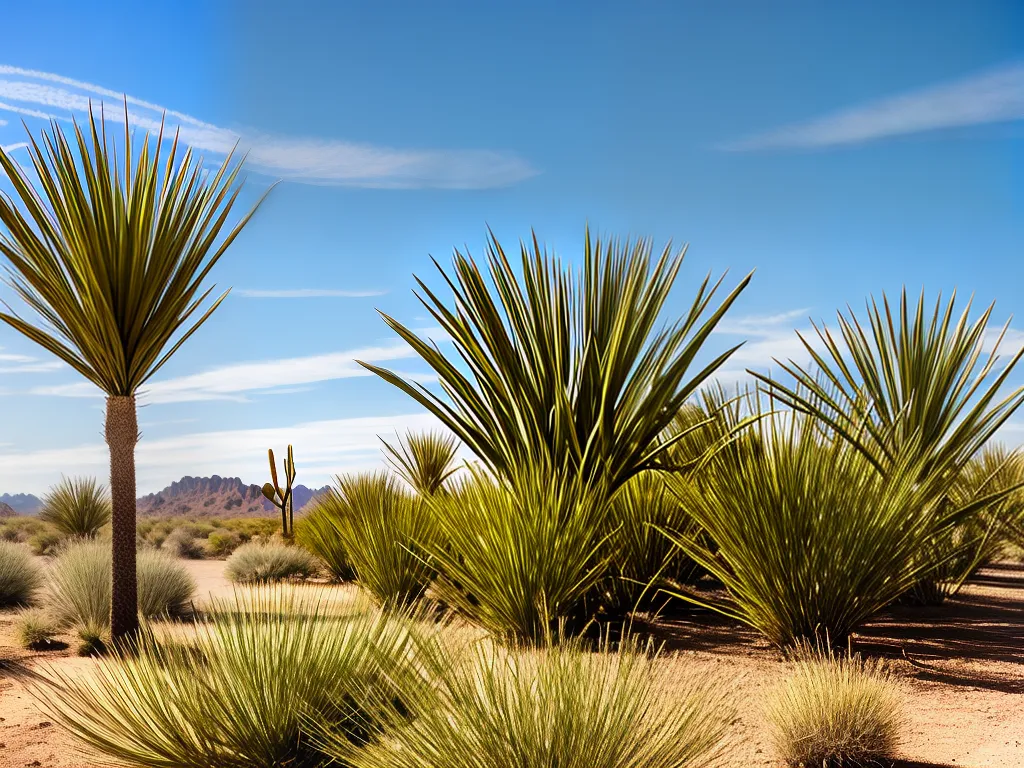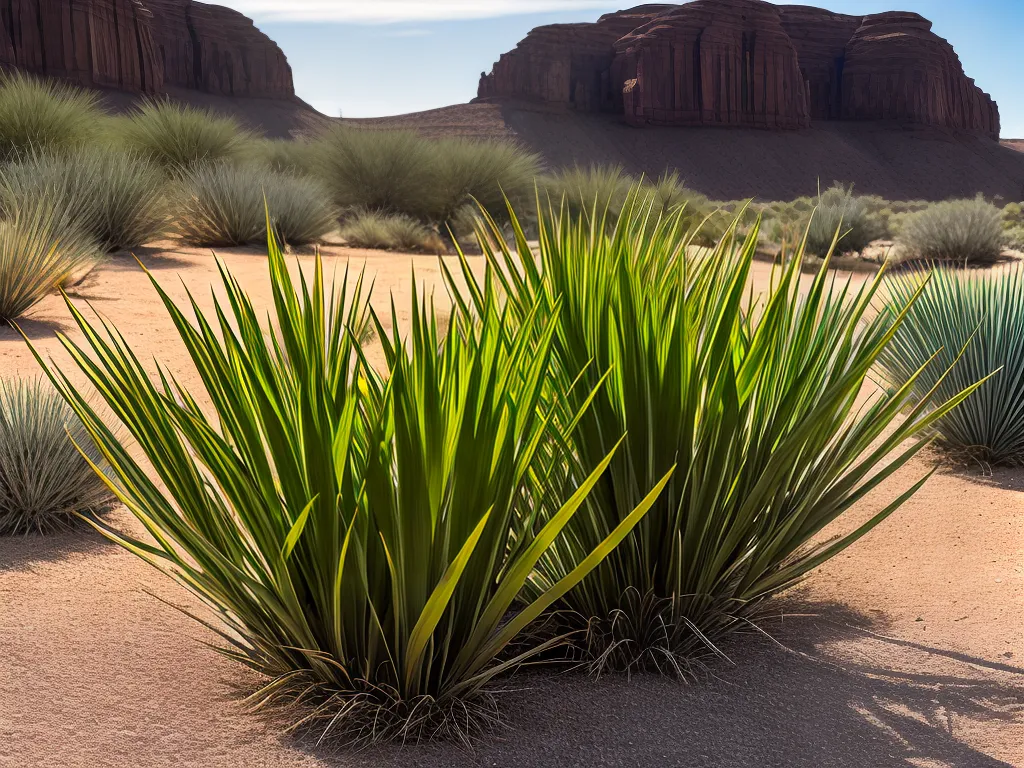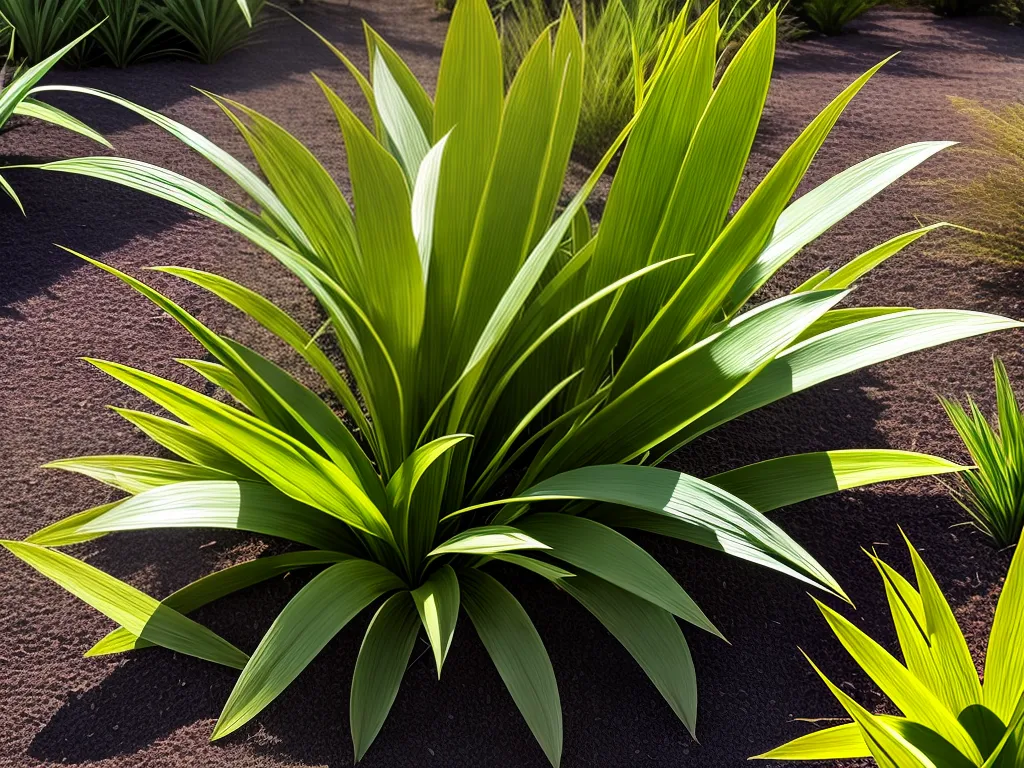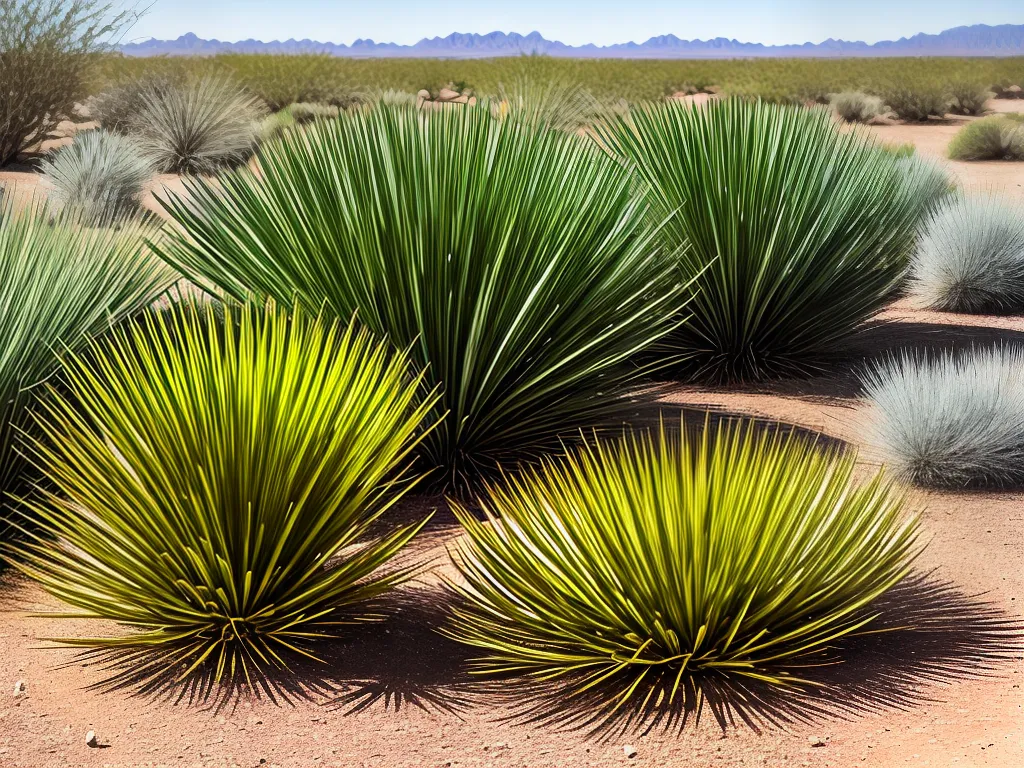Table of contents
大家好!今天我想和大家谈谈一种在室内外装饰中占有越来越大空间的植物:Dasilirion。 你听说过它吗? 你知道它被称为 "无刺美人 "吗? 嗯,这种植物真的很神奇,有很多有趣的特点。 你想知道更多关于Dasilirion的信息吗?你认为这种植物容易打理吗?"Dasilirion "这个名字的由来是什么? 它可以用来装饰室内吗? 你很好奇吗? 那就继续阅读,了解关于Dasilirion的一切吧

Dasilirion: Beauty Without Thorns "的摘要:
- Dasilirion是一种观赏植物,因其异国情调的美丽和没有刺而备受赞赏。
- 该植物原产于墨西哥,因其狭长的叶片在底部形成莲座而闻名。
- Dasilirion抗旱和抗寒,是较干旱地区花园的最佳选择。
- 该植物也被用于室内装饰,在花盆和插花中使用。
- 除了美观之外,Dasilirion还具有药用价值,可用于治疗呼吸道疾病和作为天然消炎剂。
- 种植Dasilirion,需要选择阳光充足、排水良好的地方。 浇水要适度,避免过多的水。
- 该植物可以通过种子或从母株基部取出的幼苗进行繁殖。

发现达西里昂之美:一个没有荆棘的花园
谁从来没有被花园的美丽所迷惑,但最后却因为植物上的刺而放弃了这个想法? 嗯,这是花园爱好者共同关心的问题。 但如果我告诉你,有一种植物和其他植物一样美丽,但没有刺呢? 是的,它存在!它的名字叫Dasilirion。
灌木丛中的音乐:独特的声音体验认识优雅的花园植物Dasilirion
Dasilirion是一种原产于墨西哥和美国西南部的植物。 它的身材优雅,高度可达2米。 它的叶子狭长,颜色为蓝绿色,给环境带来异国情调。 此外,它的叶子没有刺,这使得Dasilirion成为那些寻找无风险花园植物的最佳选择。
种植和养护达西里昂:你需要知道的一切
大头菜是一种耐寒植物,容易照顾。 只要排水良好,它就能很好地适应不同类型的土壤。 种植后第一年要经常浇水,但之后就不需要太多的水了。 此外,大头菜喜欢充足的阳光,不耐受非常低的温度。
Dasilirion如何改变你的花园景观
大戟是一种多功能植物,可以在花园景观中以各种方式使用。 它与其他植物如仙人掌和多肉植物搭配使用,或作为岩石花园的亮点,看起来非常棒。 它还可以用来创建树篱或划分花园的空间。
哪里可以找到以及如何选择适合你的空间的Dasilirion物种
市场上有几个品种的Dasilirion。 要为你的空间选择一个理想的品种,重要的是要考虑到它能达到的大小和地点的气候条件。 此外,重要的是要从一个可靠的地方购买植物,提供质量保证。
内部和外部装饰中的Dasilirion
Dasilirion不是专门用于花园的植物,它也可以用来装饰室内,如客厅和阳台。 在这种情况下,重要的是选择适应封闭空间的小型物种。 此外,重要的是把它放在自然光充足的地方。
从使用Dasilirion的令人难以置信的景观设计项目中获得灵感
最后,我把一些使用Dasilirion的令人难以置信的景观工程分开。 这些想法让你得到启发,把你的花园变成一个真正的无刺天堂。 请看:
- 有达西里昂和仙人掌的岩石花园
- Dasilirion活体护栏
- 有达西里昂和棕榈树的热带花园
- 阳台上的盆栽达西里昂
See_also: 黑玫瑰:图片、特征和养护你喜欢Dasilirion吗? 请在下面评论你最喜欢的想法,并与同样热衷于园艺的朋友们分享它

| 命名 | 描述 | 奇闻趣事 |
|---|---|---|
| 达尔西里昂 | Dasilirion是天门冬科植物的一个属,原产于墨西哥和美国西南部。 它有长而窄的绿色叶片,没有刺,从植物的中心向各个方向伸出。 | Dasilirion这个名字来自希腊语 "dasy",意思是粗糙,"lirion "意思是百合,但尽管如此,这种植物没有刺。 |
| Dasilirion wheeleri | Dasilirion wheeleri是Dasilirion的一个品种,也被称为 "sotol",生长在亚利桑那州、新墨西哥州和德克萨斯州的沙漠地区。 它是一种多年生植物,高度可达1.5米,宽度可达1米。 它的叶子是绿色的,很长,没有刺,在植物的顶部形成一个密集的莲座。 | 索托是美国西南部和墨西哥本土文化的一种重要植物,用于生产酒精和非酒精饮料,并具有药用价值。 |
| 德士林 | Dasilirion texanum是Dasilirion的一个品种,生长在德克萨斯州和墨西哥的沙漠地区。 它是一种多年生植物,高度可达2米,宽度为1.5米。 它的叶子是绿色的,很长,没有刺,在植物的顶部形成一个密集的莲座。 | Dasilirion texanum是沙漠花园中的一种流行植物,因为它的美丽和对极端天气条件的抵抗力。 它是一种低维护的植物,可以在盆中或地面上生长。 |
| Dasilirion longissimum | Dasilirion longissimum是Dasilirion的一个品种,生长在墨西哥的沙漠地区。 它是一种多年生植物,高度可达2米,宽度为1.5米。 它的叶子是绿色的,很长,没有刺,在植物的顶部形成一个密集的莲座。 | Dasilirion longissimum是沙漠花园中的一种流行植物,因为它的美丽和对极端天气条件的抵抗力。 它是一种低维护的植物,可以在花盆或地面上种植。 |
| Dasilirion serratifolium | Dasilirion serratifolium是Dasilirion的一个品种,生长在墨西哥的沙漠地区。 它是一种多年生植物,高度可达2米,宽度为1.5米。 它的叶子是绿色的,很长,没有刺,在植物的顶部形成一个密集的莲座。 | Dasilirion serratifolium是沙漠花园中的一种流行植物,因为它的美丽和对极端天气条件的抵抗力。 它是一种低维护的植物,可以在盆中或地面上种植。 |
来源:维基百科

1. 什么是Dasylirion longissimum?
Dasylirion longissimum是一种原产于墨西哥的观赏植物,也被称为光滑或无刺的dasilirion。
❤️eus的朋友们正在享受它:
